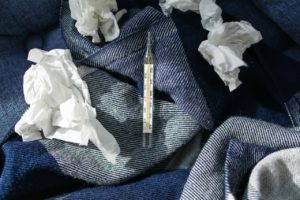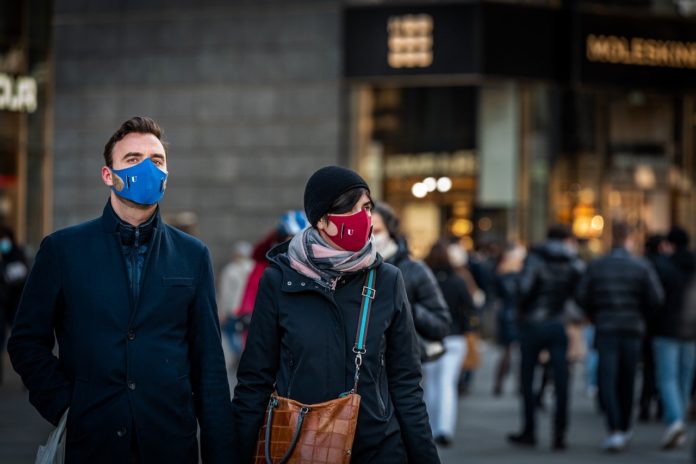It’s been just over a year since the first person was diagnosed with COVID-19 in the Netherlands.
The SARS-CoV-2 coronavirus causes COVID-19. Scientists involved say this disease isn’t going anywhere. It’s going to become endemic (a disease or condition regularly found among particular people). We have to learn to live with it, they say, as with other viruses.
“If this virus becomes endemic, it means everyone will come into contact with it. They’ll be able to build up partial immunity. Its symptoms might become less severe as it moves toward a common respiratory virus,” says microbiologist Prof. Paul Savelkoul.
Can Corona ‘leave the country’
The Dutch Secretary of Health, Paul Blokhuis, recently stated that ‘Corona must leave the country’. Is that even possible? No, say all the scientists questioned for this NOS article.
“It’s unrealistic, given the number of undetectable infections. And new introductions from neighbouring countries keep occurring,” says epidemiologist Dr Quirine ten Bosch. “The virus will continue to circulate worldwide and thus return,” adds a second microbiologist, Prof. Marc Bonten.
Dr Ann Vossen, a virologist, says it’s doubtful that people will achieve “sterile immunity”. That’s when the immune response is such that a pathogen doesn’t enter the body. “Neither after becoming infected nor getting vaccinated infection. The virus will continue to circulate from person to person.”
Here to stay
“The extent to which we’re affected will differ if most of the population is immune,” explains Dr Alma Tostmann, who is also an epidemiologist. “We’ll probably have an annual outbreak or one every few years. That depends on how long immunity lasts.”
People will always contract COCID-19, thinks microbiologist Prof. Alex Friedrich. “Especially people with lower resistance will get it as a secondary disease. There may be outbreaks too in places like institutions with groups of very susceptible people.”
According to the experts, SARS-CoV-2 could behave must like seasonal flu. “Such a comparison isn’t wrong; it’s still premature, however. It could still have a considerable impact on health care facilities,” warns Heiman Wertheim, yet another professor of microbiology.

Will it be annual?
“It could, indeed, develop to become similar to influenza. The question is whether there will be yearly infections. Maybe at first, but we don’t see the other coronaviruses every year either,” says virologist Prof. Bert Niesters.
“Increasing immunity means it will crop up less every season. In bad years, the virus will cause peaks, just like with flu,” says microbiology professor Andreas Voss. Field epidemiologist Amrish Baidjoe agrees. “But it depends very much on the virus’ level of circulation and number of animal hosts.”
Virologist Prof. Menno de Jong thinks it’s best to vaccinate at-risk groups every year, like with flu. “Unless it turns out that COVID-19’s endemic circulation effects don’t differ enough from the other seasonal coronaviruses. Then vaccination may no longer be cost-effective,” he adds.
A lot of unknowns
Even with all these expert opinions, much is still unknown. The vaccines are so new that no one knows how long they protect against this coronavirus strain. “Nor do we know how many neutralising antibodies you need for protection,” admits Prof. Anke Huckriede.
She’s a vaccinologist. She says the also don’t know what role other immune mechanisms play. These are things like non-neutralising antibodies and T cells. According to immunologist Dr Dimitri Diavatopoulos, ‘booster shots’ may be needed. “But I honestly don’t think people will need to get these every year.”
If SARS-CoV-2 remains, should its shots be included in the National Vaccination Programme? Yes, the scientists say. At least for specific groups. Epidemiologist Prof. Frits Rosendaal thinks that a vaccination programme like the one for influenza will be possible in the future.
That’s because of the combination of group immunity, vaccinations, and the disease’s milder nature. “So, vaccinate everyone over 18 or even younger, now. That’s to bring the pandemic to an end. Then, later, vaccinate only for protection, so only the elderly and at-risk groups.”
The way forward
The scientists interviewed differ on how this disease will affect the Dutch healthcare system. And how to deal with it in the future. Prof. Friedrich thinks all major Dutch hospitals must get more ICU and infectious disease beds. “These hospitals will receive (suspected) COVID-19 patients from their entire region.”
“I think we’ll be able to respond timeously and adequately to a future endemic SARS-CoV-2,” believes Dr Ten Bosch. “So, hospitals won’t have to expand their ICU capacities. Unless variants emerge against which vaccines don’t offer protection.”
“I think investing in a national vaccination knowledge centre and our production capacity is a better alternative,” says Dr Diavatopoulos. Prof. Voss wants to reduce the number of patient contacts by increasing e-care. “To tackle the next pandemic better, we need to increase the ICU capacity, says virologist Prof. Bert Niesters. “But we must also improve home care and nursing home infection prevention.”
Please see the original article for the full list of experts consulted and their credentials.
Source: NOS
Translator: Melinda Walraven











